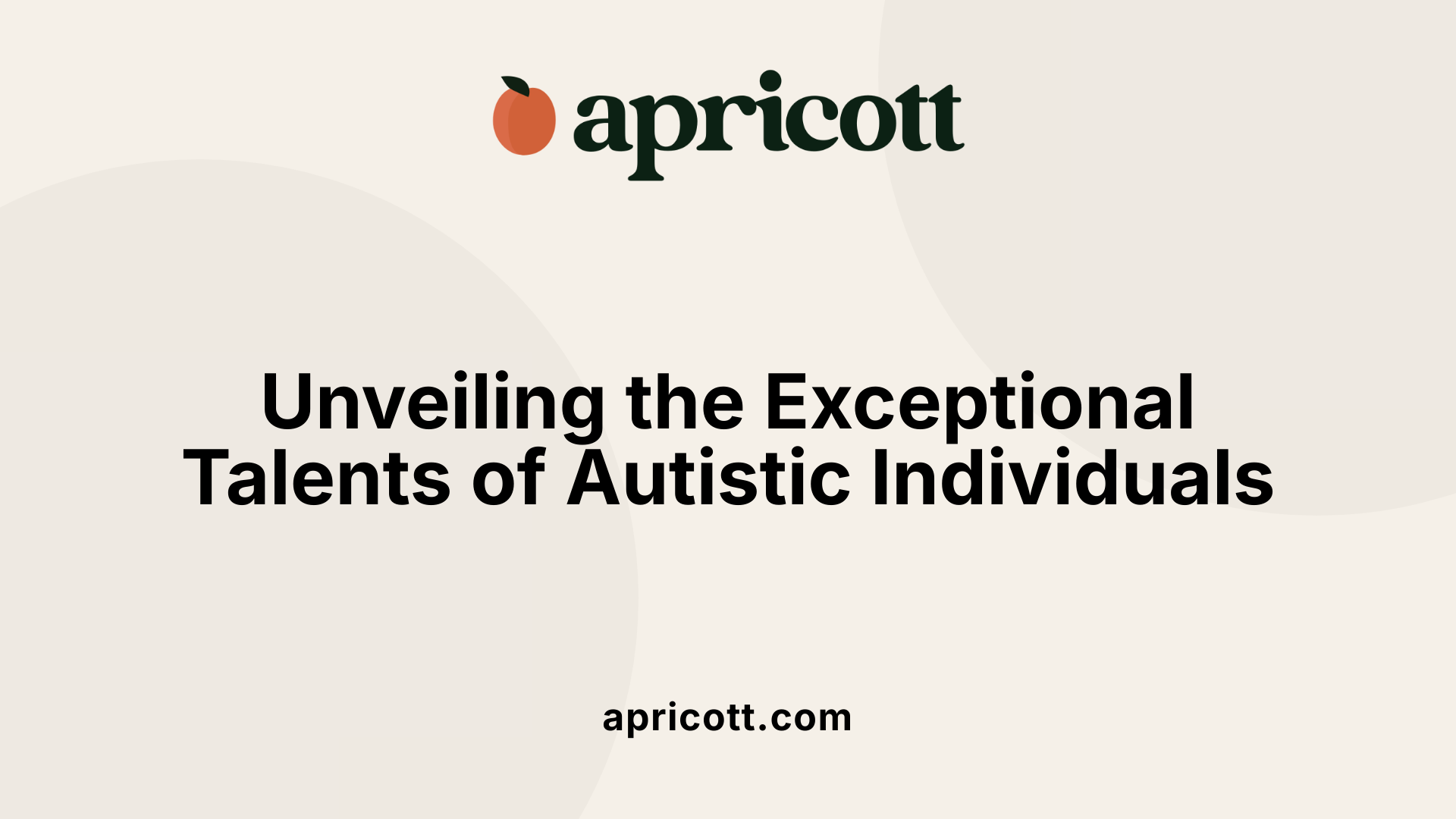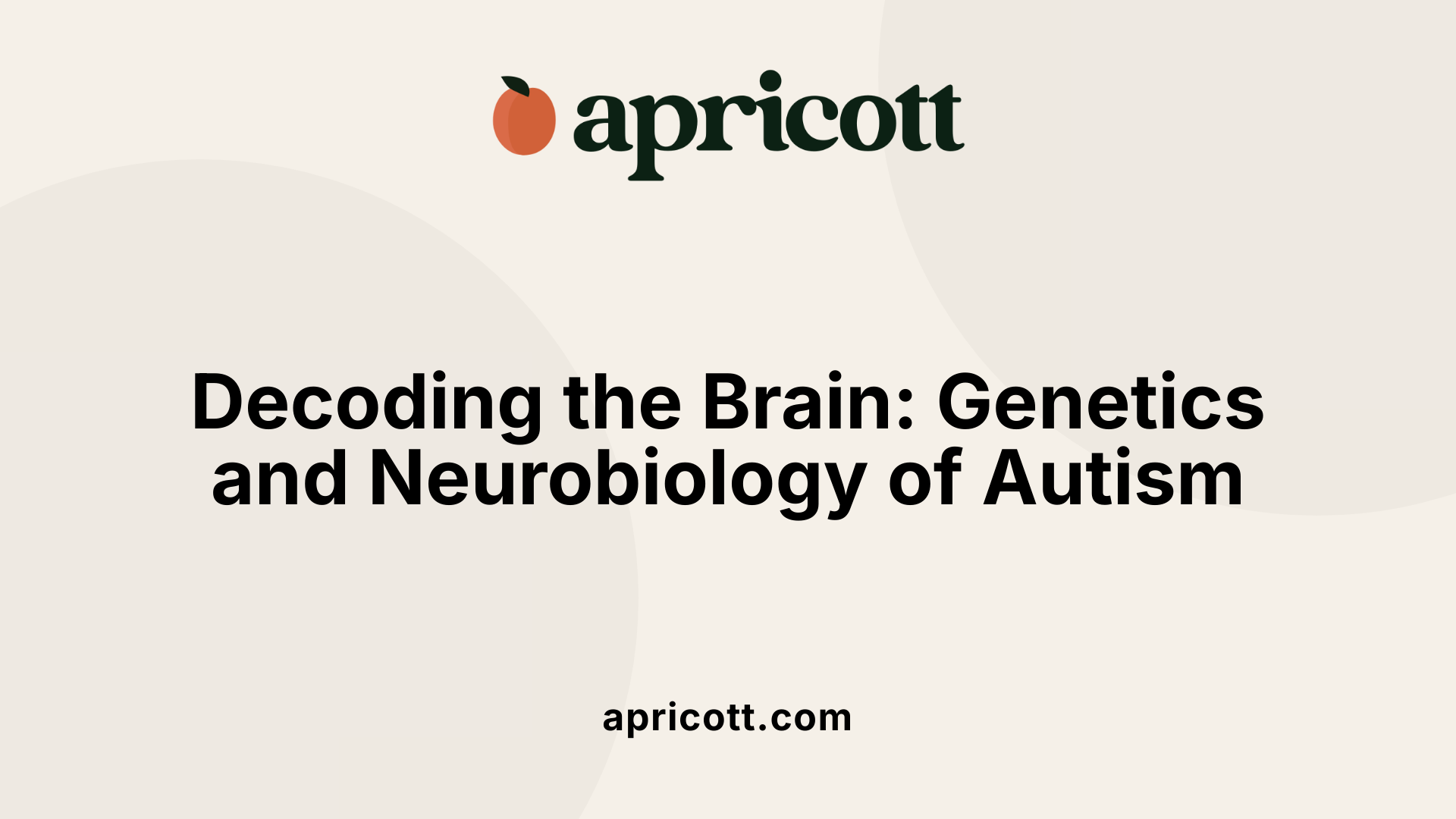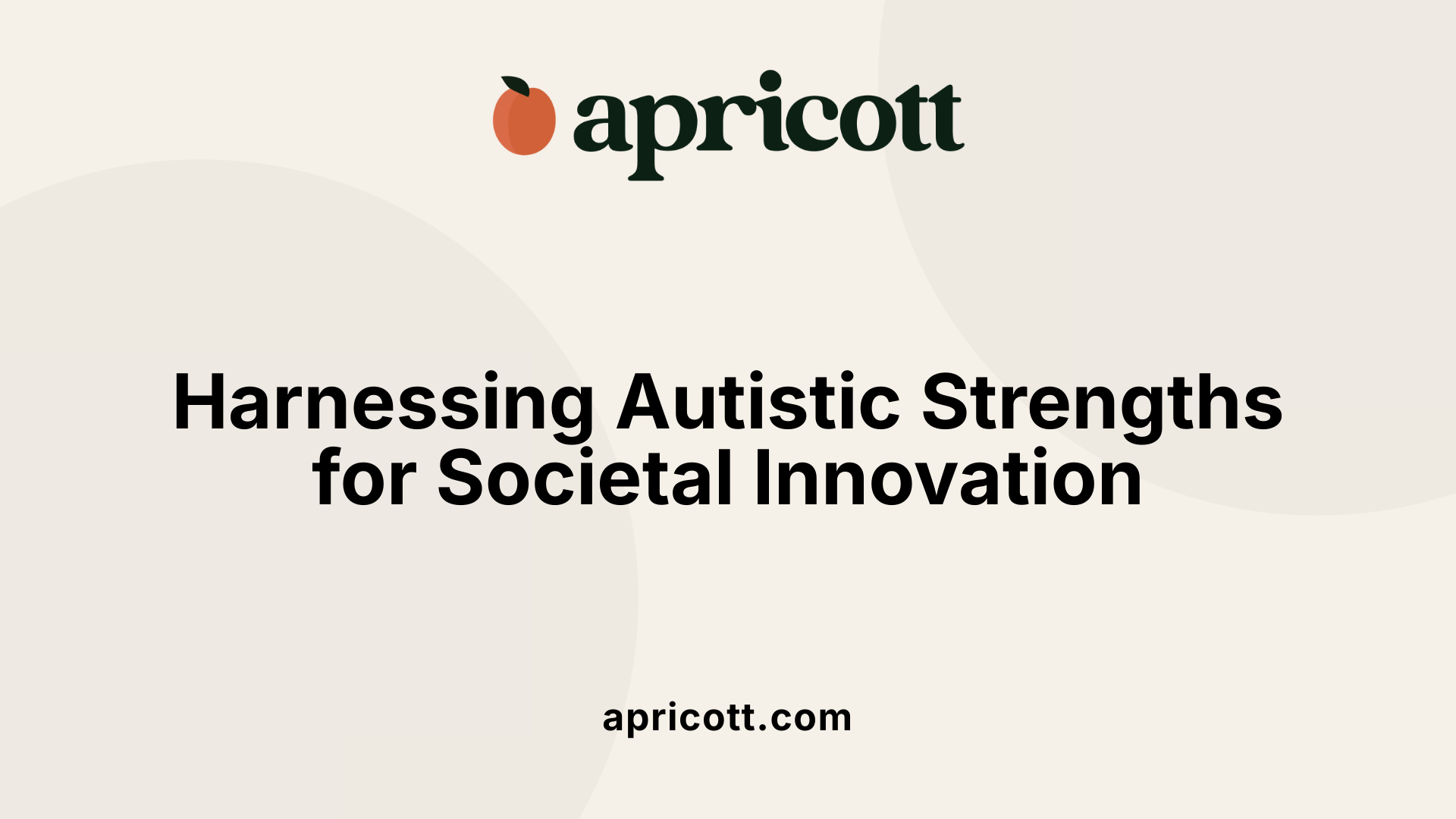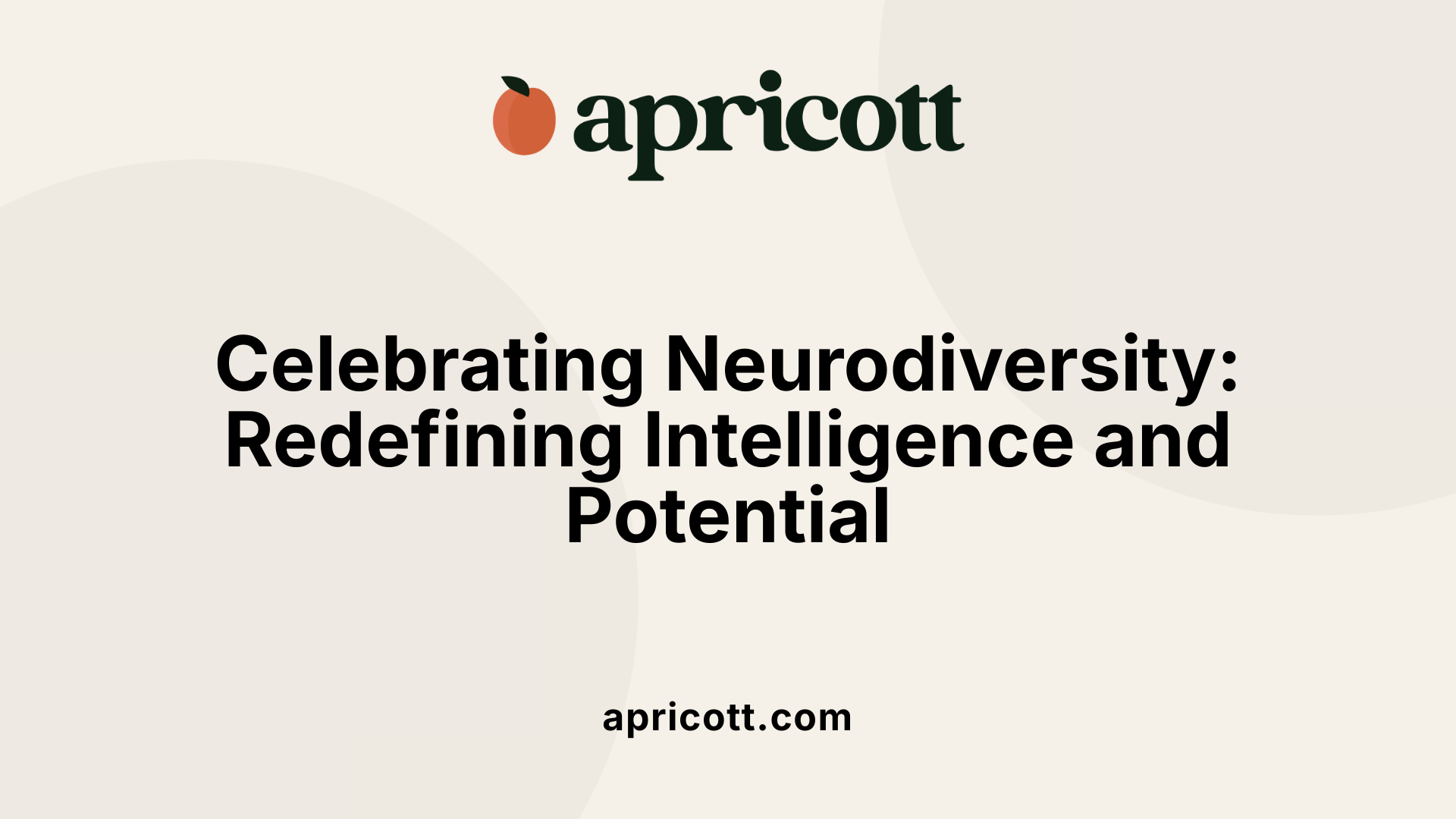July 16, 2025
Unveiling the Cognitive Spectrum of Autism
The question 'Are autistic people smart?' often prompts a nuanced discussion about the diverse cognitive profiles within the autism spectrum. While some perceive autism through stereotypes rooted in social and behavioral challenges, contemporary research reveals a complex relationship between autism and intelligence, highlighting remarkable strengths, unique talents, and shared genetic factors. This article aims to delve into scientific evidence, historical examples, and societal perceptions to shed light on the true potential of autistic individuals.
Autism is characterized by a wide range of cognitive profiles, with some individuals demonstrating exceptional abilities, while others face intellectual challenges. Research shows that about 30% of people on the spectrum possess remarkable talents, particularly in areas like mathematics, music, and visual arts. These strengths often stem from unique cognitive skills such as advanced pattern recognition, visual-spatial talents, and analytical thinking.
Children on the spectrum frequently outperform their peers in visual-spatial tasks, showcasing their natural aptitude for understanding and manipulating visual information. This highlights the importance of recognizing the broad spectrum of abilities within autism, rather than viewing it solely through a lens of challenges.
Recent studies shed light on how autistic individuals perform on various cognitive tests. For instance, research by Isabelle Soulières and colleagues in 2009 revealed that autistic individuals excel in Raven’s Matrices, a test that measures analytical and reasoning skills. This suggests that many on the spectrum possess a form of cognitive aptitude that is often underappreciated.
Further, historical figures such as Isaac Newton, Albert Einstein, and Wolfgang Mozart displayed traits associated with autism and made groundbreaking contributions in their fields. Their lives support the idea that autism can be linked to exceptional talents and high intelligence.
A study from Cambridge University examined the ‘autistic genius’ phenomenon and found that traits typical of autism are more common among individuals working in STEM fields. This points to a potential connection between autism and specific strengths like problem-solving, pattern recognition, and abstract thinking.
Overall, the relationship between autism and intelligence is multifaceted. While many autistic individuals show high cognitive abilities, others may face intellectual disabilities. Both genetic and neurological factors contribute to this diversity, with some evidence indicating shared origins of autism and high intelligence.
The understanding of autism’s cognitive spectrum encourages personalized approaches for development and support, including therapies like ABA, which can help nurture strengths and address challenges. Recognizing the potential for remarkable talents in many on the spectrum is crucial for fostering inclusive environments where their unique abilities can flourish.

Autistic individuals commonly demonstrate exceptional cognitive abilities that distinguish them from neurotypical peers. These strengths include outstanding memory, especially in specialized areas of interest, and highly developed pattern recognition skills. Many show heightened perceptual skills, excelling in visual and auditory tasks, which make them particularly sensitive to sensory details.
Some autistics possess specialized talents such as savant skills in music, art, or mathematics. For instance, they may have an extraordinary ability to compose complex pieces, create intricate artworks, or perform rapid calculations without formal training. These remarkable talents often stem from increased connectivity between different brain regions involved in sensory processing and reasoning.
Their abilities extend to exceptional visual-spatial reasoning, making them adept at understanding and manipulating spatial information. Many also excel in problem-solving, systemizing, and focusing intensely on areas of interest (hyperfocus). Such focus allows them to develop deep expertise and innovative ideas.
Autistic individuals' unique cognitive profiles—characterized by intense attention to detail and sometimes synesthetic experiences—fuel their talents in various fields. This combination of strengths contributes greatly to advances in art, science, technology, and other domains, although the degree of ability can vary widely across the spectrum.
By supporting these strengths through personalized approaches like behavioral therapy, many autistic individuals are able to thrive and develop their full potential, leveraging their innate talents and cognitive abilities.
Throughout history, numerous prominent figures such as Isaac Newton, Albert Einstein, and Wolfgang Mozart have exhibited traits that align with characteristics associated with autism. These individuals demonstrated intense focus, extraordinary problem-solving abilities, and unique ways of perceiving the world. For example, Einstein's profound visual-spatial skills and Mozart’s exceptional musical talent exemplify how traits linked to autism can manifest as remarkable talents.
Scientific and anecdotal evidence supports the idea that autism can be associated with exceptional intelligence. Research by Isabelle Soulières and colleagues in 2009 revealed that autistic individuals often perform better than average in Raven’s Matrices tests, which assess analytical thinking skills. This suggests a distinctive cognitive style that favors visual-spatial reasoning and pattern recognition.
Further studies, including one from Cambridge University, highlight a higher prevalence of autistic traits among individuals working in STEM fields, reinforcing the idea of a connection between autism and certain cognitive strengths. Many on the spectrum excel in problem-solving, analytical thinking, and visual tasks, often outperforming their neurotypical peers.
Genetic and neurological research supports this link, indicating shared factors that contribute to both autism and high intelligence. About 30% of autistic individuals display remarkable talents, especially in music, mathematics, and visual arts.
The remarkable abilities in visual-spatial tasks and pattern recognition often seen in children with autism underscore their unique cognitive profile, which includes heightened attention to detail, exceptional memory, and perceptual skills. Such traits can underpin savant talents and artistic or scientific accomplishments.
Understanding these links encourages personalized approaches like ABA therapy, which can nurture and develop these strengths. Although challenges remain, recognizing the diversity of cognitive abilities in autistic individuals enhances our appreciation of their potential for extraordinary contributions in various fields.
Stereotypes surrounding autism and intelligence play a significant role in shaping societal perceptions. Media portrayals often emphasize extreme examples, such as savant talents or severe social deficits, which do not accurately reflect the full spectrum of autistic experiences. Movies like Rain Man have popularized images of autistic savants, leading many to believe that exceptional abilities are the norm rather than exceptions.
This skewed representation fosters misconceptions, making it easy for society to overlook the diversity within the autism community. While some individuals on the spectrum do demonstrate remarkable problem-solving, analytical skills, and creativity—traits linked to higher intelligence—they represent only a subset.
The impact of these stereotypes can be profound. They may result in societal stigmatization, where autistic individuals are unfairly judged or marginalized. Consequently, many miss out on opportunities for education, employment, and social inclusion.
Challenging these stereotypes requires a broader understanding of autism. Emphasizing positive, accurate representations and promoting neurodiversity can help shift perceptions. Recognizing that autism encompasses a wide range of abilities and experiences is crucial. Many autistic individuals possess exceptional talents in areas like mathematics, music, and visual arts, but they also face challenges that are often underestimated due to pervasive stereotypes.
By fostering awareness and understanding, society can create a more inclusive environment where autistic strengths are celebrated and support systems are tailored to individual needs, moving beyond narrow stereotypes towards a more respectful and accurate perception of autism and intelligence.
Autistic individuals often have a wide range of exceptional skills across diverse fields such as arts, sciences, music, and technology. Many demonstrate remarkable analytical thinking, problem-solving, and visual-spatial abilities, which allow them to excel in tasks that require detailed observation and technical expertise.
Research, including a 2009 study by Isabelle Soulières, highlights that autistic individuals tend to perform better in tests like Raven’s Matrices, which evaluate pattern recognition and logical reasoning. This points to a natural aptitude for analytical thinking, often linked to their strengths in pattern recognition and memory.
In addition to cognitive strengths, many autistic individuals possess savant talents—extraordinary abilities like perfect pitch in music, exceptional memory, or remarkable artistic capabilities. These talents are frequently associated with intense interests and deep focus, enabling some to master complex skills or create highly detailed work.
Furthermore, autism is often linked with unique perceptual abilities such as heightened sensory sensitivities and exceptional visual skills. For example, children on the spectrum often outperform their peers in visual-spatial tasks, showcasing their perceptual acuity.
Some of these talents are rooted in genetic and neurological factors, which influence the distinctive cognitive 'profiles' seen in autistic individuals. These include keen attention to detail, pattern recognition, and enhanced memory, all of which foster creativity and innovation.
Finally, traits like dependability, creativity, and a strong work ethic are common in autistic individuals. When supported with personalized approaches such as ABA therapy, they can develop their strengths further and contribute significantly to their communities, often in groundbreaking ways.

Research and personal reports suggest that many autistic individuals have impressive cognitive strengths. Scientific studies, such as the one by Isabelle Soulières et al. in 2009, show that autistic individuals often perform better on tests like Raven’s Matrices, which measure analytical skills. This indicates a unique pattern of intelligence that favors visual-spatial reasoning and problem-solving.
Historical figures like Isaac Newton, Albert Einstein, and Wolfgang Mozart, who are believed to have exhibited traits associated with autism, made groundbreaking contributions in science, mathematics, and music. Their achievements highlight a possible link between autism and exceptional talents.
Recent studies from institutions like Cambridge University explore the connection between autism and high-level skills in STEM fields. They find that individuals with autistic traits are more likely to excel in analytical and technical areas, which are vital in science, technology, engineering, and mathematics.
Autistic individuals often show strengths in specific areas such as pattern recognition, detailed memory, and sensory perception. Visual-spatial abilities and problem-solving are prominent, helping many achieve remarkable abilities akin to savant skills.
Genetic research points to a biological link, with indications that certain genes associated with autism also relate to higher intelligence levels in some individuals. Neuroanatomical studies observe features like larger brain size and rapid early development, which may contribute to enhanced cognitive capacities.
In the broader population on the autism spectrum, about 30% demonstrate notable talents in fields like mathematics, music, or visual arts. These talents often stem from their distinct cognitive profiles and neurological wiring.
Understanding these traits can help in developing personalized strategies such as ABA therapy, which can nurture and build on their strengths, promoting social and cognitive growth.
Overall, a mix of scientific evidence and historical examples points to a significant relationship between autism and exceptional intellectual abilities, driven by unique neurobiological and genetic factors.
Applied Behavior Analysis (ABA) therapy plays a crucial role in supporting autistic individuals by focusing on their unique cognitive profiles and strengths. This personalized approach tailors interventions to meet specific needs, helping individuals develop essential skills and improve their overall functioning.
ABA therapy emphasizes reinforcing positive behaviors and reducing challenges, which creates a more adaptive environment. It often targets areas such as communication, social skills, self-regulation, and problem-solving, aligning with strengths like pattern recognition and analytical thinking.
By leveraging individual talents, ABA strategies can boost confidence and independence in autistic individuals. For example, those with visual-spatial strengths might be given tasks that harness this skill, encouraging mastery and self-efficacy.
This approach highlights the importance of customizing education and therapy plans. Recognizing that each autistic person has different strengths and needs, therapies can be adapted to nurture peak potential.
Overall, evidence-based interventions like ABA help transform innate cognitive abilities into valuable skills, enabling autistic people to thrive socially, academically, and personally.

Recognizing the unique talents of autistic individuals plays a vital role in fostering an inclusive society. When we appreciate their exceptional abilities, such as advanced analytical thinking and visual-spatial skills, we create an environment where they can thrive rather than be marginalized. This acknowledgment encourages supportive educational and workplace settings tailored to their strengths, such as personalized learning approaches like ABA therapy.
Autistic individuals often possess remarkable skills that significantly benefit innovation and productivity. Studies indicate that nearly 30% of people on the spectrum exhibit extraordinary talents in fields like mathematics, music, and visual arts. Their unique cognitive profiles, including pattern recognition, attention to detail, and strong memory, make them invaluable in technical problem-solving and creative pursuits.
Historical figures such as Isaac Newton and Albert Einstein likely showcased traits associated with autism, illustrating that such traits can coincide with groundbreaking discoveries and achievements. Contemporary research from institutions like Cambridge University supports this, showing higher rates of autistic characteristics among STEM professionals.
Their contributions extend beyond individual achievements. In communities and workplaces, recognizing and nurturing these talents fosters diversity of thought, enhances creativity, and drives scientific and artistic progress. By valuing their exceptional abilities, society can unlock innovative solutions and cultivate richer, more inclusive environments that benefit all.

Stereotypes about autism and intelligence significantly influence society’s understanding of autistic individuals. Often, these assumptions are shaped by media portrayals. Movies like "Rain Man" have popularized images of savant skills, leading many to believe all autistic people possess extraordinary talents. This is not accurate, as the spectrum encompasses a wide range of abilities.
Unfortunately, these stereotypes can lead to misunderstandings and stigmatization. Autistic individuals may face social exclusion or discrimination because others overlook their unique strengths or underestimate their potential. While some do demonstrate exceptional abilities in areas like mathematics, music, or visual arts, most autistic people have diverse developmental experiences that are not captured by the myth of the 'autistic genius.'
Challenging these misconceptions is essential. Promoting education, fostering positive representation, and embracing neurodiversity help create a more accurate understanding. Recognizing the varied cognitive profiles within autism allows society to appreciate the strengths that many autistic individuals bring, such as analytical thinking, visual-spatial skills, and remarkable memory.
By shifting perceptions, we can support inclusion and offer tailored opportunities that nurture each person’s potential, moving beyond stereotypes to acknowledge the richness of neurodiversity.
Recognizing the diverse cognitive profiles within the autism spectrum is crucial for fostering inclusivity, supporting individual strengths, and challenging stereotypes. Autism is not a monolith; it encompasses a broad range of abilities, talents, and potential. Emphasizing neurodiversity enables society to appreciate the unique contributions autistic individuals make and promotes a Shift from narrow definitions of intelligence to more inclusive, holistic understandings. As research continues to uncover the complex biological and neurological underpinnings, it is clear that many autistic people are indeed smart in many ways, deserving of recognition, respect, and opportunities to thrive.